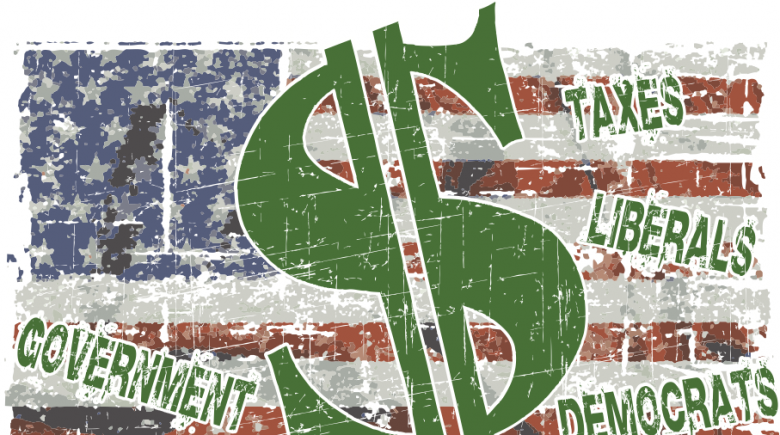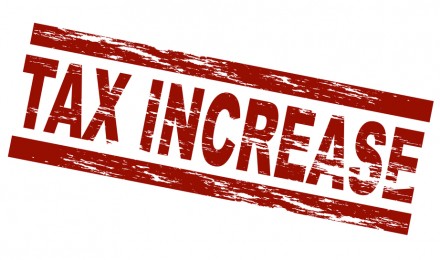Recently I wrote to you about how Apple has legally sheltered billions of dollars overseas. Through certain legal loopholes in the tax code, the company has managed to pay very little by properly structuring where they are domiciled and where they conduct business. A recent proposal by Senator Max Baucus (D – Mont) on international tax reform could see an end to that.
Under the current law, US companies owe corporate taxes at a rate of 35%. However, they can earn a credit for money that is paid to foreign governments, subsequently reducing the taxes they owe to the US government. But the biggest advantage they have is that until the money returns the US, these companies do not owe any taxes. As long as they are making money, and keeping it overseas, they will not owe US taxes. This has caused a stockpile of over $2 Trillion to be left outside of the US, untaxed.
This new proposal is to impose an immediate 20% tax on any earnings that have been stockpiled, and then to lower the overall corporate tax rate (the actual rate has not yet been established). This new lower rate would be lowered by another 20% for any company with foreign earnings. This means if a company earns money overseas and pays 10% to that foreign government, and the new corporate tax rate is 25%, the company would owe the difference of what they paid to the foreign government, and 80% of the new tax rate (so 25 * 80% is 20%, less the 10% already paid means they owe 10% to the US). This new law would provide an immediate $200 Billion revenue, and then an ongoing income from overseas earnings.
The good news for companies is that many domiciled and functioning within the US will see their taxes go down. There are numerous companies that are paying the full 35% taxes on all of their earnings. They could see their tax bill reduced in the coming years. The hope is that lower corporate taxes would encourage more companies to return their business to the US, thus bringing money back into our economy.
The bad news is that there are some companies that are structured in countries around the world that have very low tax rates. These companies often only pay taxes in the single digits. This new policy would make it extremely difficult, if not impossible, for them to continue to operate. While it may not seem like a big deal, a lot of these companies are the big name tech companies that we use every day. If their taxes suddenly doubled or tripled, the consequences could be that they move out the US permanently.
Corporations make a lot of money. We see that in the news often about how many billions of dollars they bring in. This is a huge money maker for the US government, and something they do not want to drive away. But the government also realizes that they lose out on a lot of income by these companies taking advantage of legal loopholes, such as stockpiling money overseas. This new plan, as well as the alternatives that Baucus is proposing, would help to eliminate those loopholes, drive businesses back to the US, create more jobs, and ultimately be a tax neutral event (lower taxes on those domiciled here, raise them on those domiciled elsewhere). The risk is that sometimes things do not go as planned, and companies may be driven away; reducing revenue to the government, and making products and services harder to find (and more expensive) for consumers.
Tax reform is a tricky subject. Nobody wants to pay more in taxes, and yet everyone wants the services that the government provides. Corporate taxes are no different than individual taxes in that sense; they just operate on a much grander scale. So as it goes, politicians have a long road ahead of them to make sure that everyone is happy. Chances are, one of these plans will pass (Baucus has 2 variations ready to go). The question is: how will the tax structure be reformed, and when will it take place?
Recently I wrote to you about how Apple has legally sheltered billions of dollars overseas. Through certain legal loopholes in the tax code, the company has managed to pay very little by properly structuring where they are domiciled and where they conduct business. A recent proposal by Senator Max Baucus (D – Mont) on international tax reform could see an end to that.
Under the current law, US companies owe corporate taxes at a rate of 35%. However, they can earn a credit for money that is paid to foreign governments, subsequently reducing the taxes they owe to the US government. But the biggest advantage they have is that until the money returns the US, these companies do not owe any taxes. As long as they are making money, and keeping it overseas, they will not owe US taxes. This has caused a stockpile of over $2 Trillion to be left outside of the US, untaxed.
This new proposal is to impose an immediate 20% tax on any earnings that have been stockpiled, and then to lower the overall corporate tax rate (the actual rate has not yet been established). This new lower rate would be lowered by another 20% for any company with foreign earnings. This means if a company earns money overseas and pays 10% to that foreign government, and the new corporate tax rate is 25%, the company would owe the difference of what they paid to the foreign government, and 80% of the new tax rate (so 25 * 80% is 20%, less the 10% already paid means they owe 10% to the US). This new law would provide an immediate $200 Billion revenue, and then an ongoing income from overseas earnings.
The good news for companies is that many domiciled and functioning within the US will see their taxes go down. There are numerous companies that are paying the full 35% taxes on all of their earnings. They could see their tax bill reduced in the coming years. The hope is that lower corporate taxes would encourage more companies to return their business to the US, thus bringing money back into our economy.
The bad news is that there are some companies that are structured in countries around the world that have very low tax rates. These companies often only pay taxes in the single digits. This new policy would make it extremely difficult, if not impossible, for them to continue to operate. While it may not seem like a big deal, a lot of these companies are the big name tech companies that we use every day. If their taxes suddenly doubled or tripled, the consequences could be that they move out the US permanently.
Corporations make a lot of money. We see that in the news often about how many billions of dollars they bring in. This is a huge money maker for the US government, and something they do not want to drive away. But the government also realizes that they lose out on a lot of income by these companies taking advantage of legal loopholes, such as stockpiling money overseas. This new plan, as well as the alternatives that Baucus is proposing, would help to eliminate those loopholes, drive businesses back to the US, create more jobs, and ultimately be a tax neutral event (lower taxes on those domiciled here, raise them on those domiciled elsewhere). The risk is that sometimes things do not go as planned, and companies may be driven away; reducing revenue to the government, and making products and services harder to find (and more expensive) for consumers.
Tax reform is a tricky subject. Nobody wants to pay more in taxes, and yet everyone wants the services that the government provides. Corporate taxes are no different than individual taxes in that sense; they just operate on a much grander scale. So as it goes, politicians have a long road ahead of them to make sure that everyone is happy. Chances are, one of these plans will pass (Baucus has 2 variations ready to go). The question is: how will the tax structure be reformed, and when will it take place?






